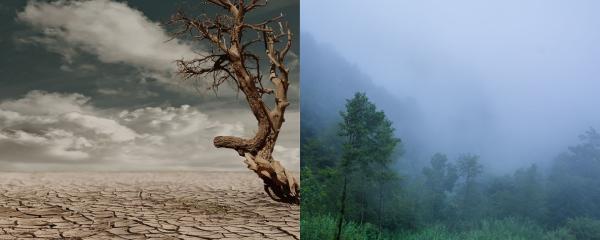
IIT Palakkad study shows how different indices used to predict drought combined with effects fof climate change can lead to different climate predictions for the future

IIT Palakkad study shows how different indices used to predict drought combined with effects fof climate change can lead to different climate predictions for the future
An international team of researchers use a multi-pronged approach to understand the diveristy in tree communities.
Some curse them, throw stones at them, beat them, and even kill them, while a few pet them and form a special bond! Domestic dogs, or Canis lupus familiaris, are known to be our 'best friends'. Yet, nearly 70-80% of the 90 crore dogs globally, about 70 crores, are free-ranging and include stray and feral dogs. How do they survive and thrive in the dangerous streets without our active care? It turns out, just like us, they have a 'family' that makes it possible.
Research from the National Institute of Advanced Studies and University of Cambridge helps us understand better of Macaques live in urban habitats.
The Vembanad lake in Alappuzha, Kerala, has developed a unique ecosystem due to different laws. The Vembanad Fish Count is a citizen science initiative that helps study the diveristy of fish in this Ramsar site.
Researchers from the Indian Institute of Science, Bangalore and the Natural History Museum, London, discover two new species of Fan throated lizards in the barren outcrops of the Deccan Plateau.
If you were a travelling salesman, who travels to many places selling something, the most challenging part of the job is to find the shortest route to these places without visiting any of them twice. But, did you know many birds, animals and even insects like bees solve a similar problem in their daily lives while searching for food?
Researchers from the Ashoka Trust for Research in Ecology and the Environment (ATREE), have analysed how climate change could affect the habitats of the Nilgiri Tahr in the years to come.
In a new study, to be published in the journal Aerosol and Air Quality Research, researchers from the Indian Institute of Technology Bhubaneswar, take a closer look at various factors that caused air pollution during Diwali of 2016.
In a new study to be published in the journal ‘Invertebrate Systematics’, researchers Dr. Jahnavi Joshi and Dr. Greg Edgecombe from the Natural History Museum, London, have set out to determine the species boundaries of an old-world tropical centipede from the genus ‘Ethmostigmus’, from Peninsular India.
Scientists from the Indian Institute of Science, Bengaluru study how and why animals from different species interact with each other.